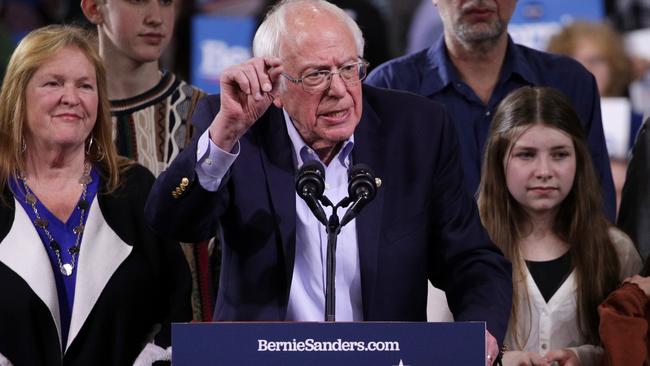Joe Biden dishes up winning formula of black, suburban, older voters
Exit polls showed Joe Biden assembling a winning coalition that included African-Americans, suburban voters and older voters.

Exit polls showed Joe Biden assembling a winning coalition that included African-Americans, suburban voters and older voters, allowing him to argue he could best unite the party against Donald Trump.
Bernie Sanders performed well with liberal voters and voters younger than 30, exit polls showed, but his poor performance in the South showed the limits to his appeal with African-Americans and moderate voters.
Mr Biden was victorious in Tennessee and Alabama, and also notched a win in Oklahoma, despite never visiting the state during his campaign.
About half the primary voters in Virginia and Oklahoma said they made their decision within the past few days, and Mr Biden won about six in 10 of those voters in both states. Late-deciders represented a smaller proportion of the vote in North Carolina and Alabama, but he also had the largest share of those voters there.
Senator Sanders won three of the first four early-voting states and showed strength with Latino voters in Nevada, liberals and young people.
But Mr Biden’s comeback in South Carolina exposed Mr Sanders’s struggles with black voters, and Tuesday’s results raised questions about whether the self-described democratic socialist could garner broad support in suburban regions viewed as critical in the general election against Mr Trump.
Senator Sanders demonstrated staying power in California and hoped to net a significant number of delegates from the state. But Mr Biden’s recent rise has prevented Senator Sanders from building a significant early delegate lead, as some of his advisers had hoped, and means the two men are likely to be engaged in a long battle for the nomination.
After the nadirs of Iowa and New Hampshire, Mr Biden’s ascent has been rapid as moderates in the party fear Senator Sanders leading the ticket.
On the eve of the primaries, he racked up the endorsements of former rivals Pete Buttigieg, senator Amy Klobuchar and Beto O’Rourke in Dallas.
For a billionaire who has long thrived on data, Michael Bloomberg couldn’t have been pleased with his Super Tuesday return on investment. He spent about $US215m ($326m) in advertising in the 14 states but was on pace to win only in American Samoa.
Mr Bloomberg campaigned extensively in the South, hoping to win over black voters and others in states such as North Carolina, Alabama and Tennessee that might otherwise be drawn to Mr Biden.
But Mr Bloomberg lost every Super Tuesday state in which he competed and was likely to encounter pressure to drop out and devote his vast resources and deep campaign operation to helping Mr Biden.
Elizabeth Warren entered the night searching for an elusive first victory and facing a home-state challenge from Senator Sanders. She come up empty-handed on both counts.
Mr Biden won the state and Senator Sanders, who staged rallies in Boston and Springfield in the days before the primary, also led Senator Warren in Massachusetts, undercutting her case that she could become a consensus choice if none of the candidates can claim a majority of the delegates by June.
She is projected to pick up delegates, which could give her leverage in a drawn-out fight for the nomination. But the promises of her campaign, when she led some national polls last northern autumn, seem long ago.
the wall street journal



To join the conversation, please log in. Don't have an account? Register
Join the conversation, you are commenting as Logout